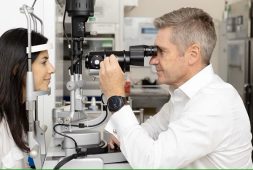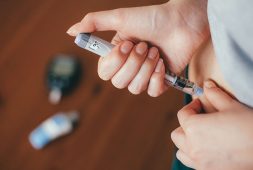
A recent study suggests that a daily low-dose aspirin pill could decrease liver fat levels in individuals with nonalcoholic steatohepatitis, commonly known as fatty liver disease.
This research focused on metabolic dysfunction-associated steatotic liver disease (MASLD), characterized by fat and inflammation. Scientists aimed to contribute to the emerging evidence indicating that aspirin, an anti-inflammatory agent, might alleviate liver fat levels.
The study involved 80 adults with MASLD who were randomly assigned to take either a low-dose aspirin (81 milligrams, commonly referred to as “baby aspirin”) or a placebo pill daily for six months. Results published in JAMA showed that aspirin led to a 6.6 percent reduction in average liver fat by the end of the study period, whereas fat increased in liver fat increased by an average of 3.6 percent in the placebo group.
Furthermore, approximately 43 percent of participants taking aspirin experienced a reduction in liver fat levels of at least 30 percent.
Low-Dose Aspirin Could Potentially Reverse Liver Fat
Tracey Simon, MD, MPH, an assistant professor at Harvard Medical School and a hepatologist at Massachusetts General Hospital in Boston, as well as the lead study author on the paper said,
“It was very exciting to find that a low-cost and readily accessible treatment option like aspirin could effectively reverse liver fat and inflammation.”
“While the exact mechanism of aspirin’s benefit in the liver is not yet known, previous studies have shown that aspirin can block numerous pro-inflammatory signals in the liver, including blocking the activation of pro-inflammatory platelets, which play a key role in the progression of steatohepatitis,” Dr. Simon adds.
Aspirin has been associated with decreased liver fat, reduced inflammation, and decreased fibrosis (scar tissue) in the liver, according to the researcher. It has also been linked to a lower risk of two severe complications of advanced MASLD: liver cancer and extreme scarring known as cirrhosis, which may necessitate a liver transplant.
None of the participants in the study had cirrhosis. In a subgroup of individuals with more advanced fibrosis, aspirin led to an average reduction in liver fat of about 12 percent, compared to a 2 percent increase in the placebo group.
Low-Dose Aspirin Side Effects
About one-third of patients in both groups encountered side effects. Four individuals in each group experienced the most common side effect, upper respiratory tract infections, while two participants taking aspirin and three on placebo developed a type of joint stiffness known as arthralgias.
Apart from its small size and relatively short duration, one limitation of the study is that nine participants had missing outcomes, which could have impacted the results.
However, it’s not unexpected that aspirin aided in reducing liver fat in individuals with MASLD, including more advanced cases with fibrosis, known as metabolic dysfunction-associated steatohepatitis (MASH), according to Wajahat Mehal, MD, DPhil, a professor and director of the Yale Fatty Liver Disease Program and the Yale Metabolic Health and Weight Loss Program in New Haven, Connecticut.
It’s Too Soon To Recommend Baby Aspirin for All MASLD Patients
Dr. Mehal says, “Aspirin may be helpful for MASH, but this study is too small [for doctors] to start recommending this to people.” While Dr. Mehal has done previous studies on aspirin for liver disease, he wasn’t involved in the new study.
Marina Serper, MD, MS, a liver disease researcher and associate professor of gastroenterology at the Perelman School of Medicine at the University of Pennsylvania in Philadelphia, concurs that it’s premature to utilize aspirin as a method to reduce liver fat in MASLD patients. However, Dr. Serper, who was not involved in the new study, believes the concept holds promise.
“Aspirin is cheap and has few side effects, so if effective, it could be a game changer,” Dr. Serper says.



